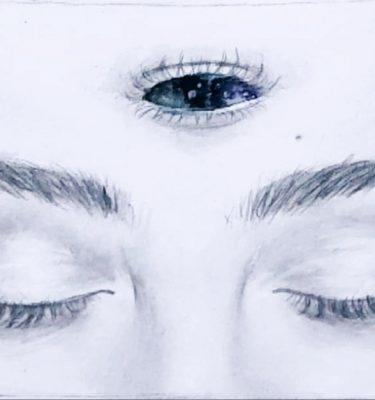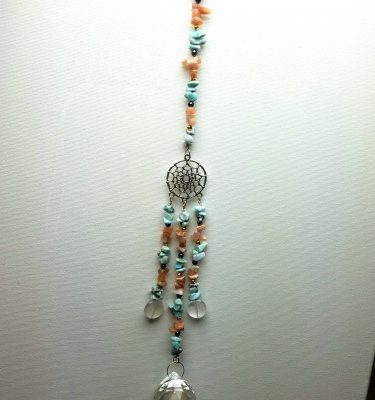
Time doesn’t go in one direction, especially in relationship to emotions, thoughts, and memories. Memories of a horrible life event continue to cause horrible body reactions, patterned thinking, same actions/choices and suffering. This is my view of karma. A habituated pattern in our mental process that shapes our predominant psychic and physical structure. We feel imprisoned by it. When you can change the perception of a life event, the energy surrounding the life event opens up and changes the perspective of the past. This gives you more space and freedom to make choices that are congruent with the version of reality that you desire today.
“If you want to change your karma, stop being the person who created the karma.” -Christopher Wallis
Many people believe that the past shapes the future. What if the future shapes the past? If I grew up poor and that poorness shaped my future financial life, I would be following the linear model of time. To follow a nonlinear model of time I start with today. I start making choices (now) to have abundance beyond anything I experienced in my past. I start taking conscious actions from this mindset. My perception of the past financial situation can be a catalyst rather than something I am helpless to change. The problem is, we are stuck in belief systems and self-imposed limitations from our concept of time. “This thing happened to me, therefore, I am now here.”
How about, “I am here now. What would I love to create from here?” Take action from intelligent presence and your story begins to take on a new conscious trajectory. A whole new ending begins starting from now, rather than from your perception of what has already transpired.
forgiveness
This topic has always perplexed me. If there is something to forgive, there would have had to be something that went wrong. Deep down, I know that there is a cosmic order to all things, even trauma, and nothing really goes wrong. But we are attached to ideas of the way we think things are supposed to go. When things go in directions we didn’t want or like, we can feel hurt or disappointed.
“Well, who appointed you?” – P. Stein
True forgiveness can happen when you accept that you are never going to un-see, un-know, or un-experience an event or situation from the past. Half the battle with forgiveness is the internal struggle to go back to how things used to be. They will never be like that again. When you found out Santa Claus was not what you believed him to be, you were unable to see Christmas the same. In your infinite wisdom, you found new ways to enjoy the holiday.
With every life experience, you are changed in some way and that is not a bad thing. We are given the opportunity to test out our belief systems and ask the ultimate human questions; “Who am I? What is my purpose? What is this situation showing me?”
Here are some questions for you to start working with forgiveness and changing the past-present-future:
Start by getting grounded. Close your eyes and take a moment to feel your breath as it enters in through your nostrils and expands your rib-cage. Pull all your energy into your body. Imagine your feet rooting into the earth and your head connecting you to the sky. Run energy through your body from earth and sky. Circulate that through your heart. Open to receive.
Think of 1 past event that causes you distress. Start with something easier until you get the hang of this practice.
Bring the event to life by remembering and writing down details of key moments. Look at this event like a melodrama.
-Who are the main characters and what are their roles in the play?
-What is your part in the play?
-What led you to being in this play?
-What are you getting from holding your memory of this play?
-Allow yourself to fully feel whatever comes up. Don’t try to distract yourself. Notice where and how the energy moves in your body. Write whatever you notice.
Possible changes you can make to your perspective.
Loosen the grip on my version of reality.
-Can I really know what the characters in my play were experiencing in their personal play?
-Using empathy, write out a few possibilities for what they may have been trying to achieve for themselves by taking a starring role in your play?
-What gifts/lessons/awards did I receive from acting in this play?
-Can I accept that things unfolded in the way that they did?
-Would I change the way things unfolded? If yes:
List out:
1) What I would change?
2) How would those changes affect my life today?
This week: Take actions as if these changes are alive for you. It might seem like you are imagining it, but you are imagining this whole thing anyway. So why not imagine it in another way?
“Even though you tie a hundred knots, the string remains one.” Rumi.
This process is a lot like unraveling a knotted string. Each time you release tension in the knot, you are closer to unbound freedom. If you just look at the knot and say, “I forgive you for being in a knot” without taking action, the knot remains. That is fine if you don’t want to use the string. If you do want to use the string, talking about or rationalizing forgiveness just won’t do. Take an action toward experiencing a felt-sense of forgiveness.
The only thing keeping you in your chosen version of reality is your belief in it.







